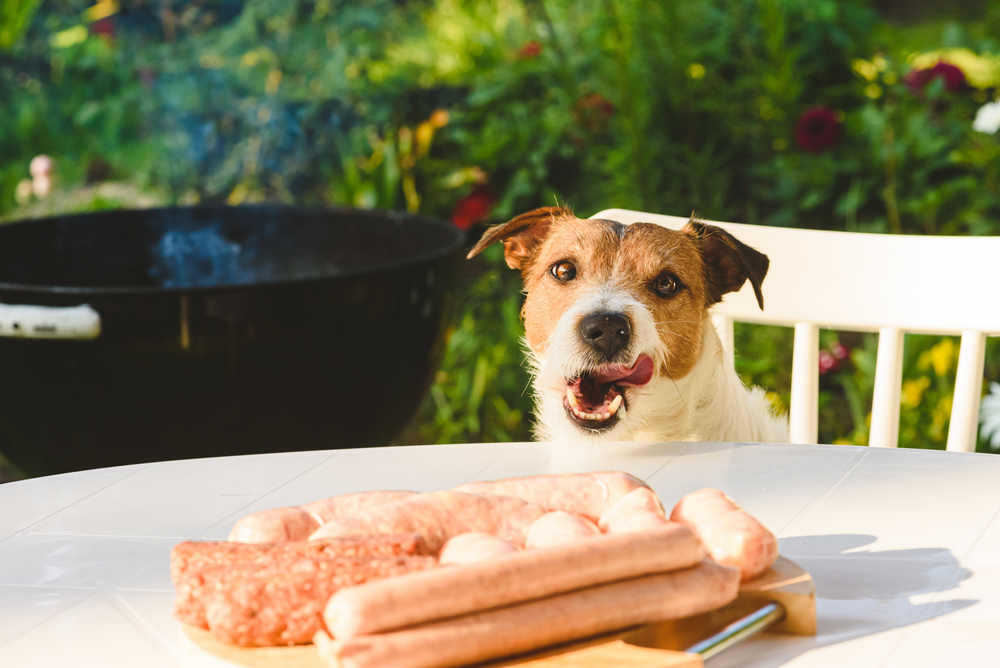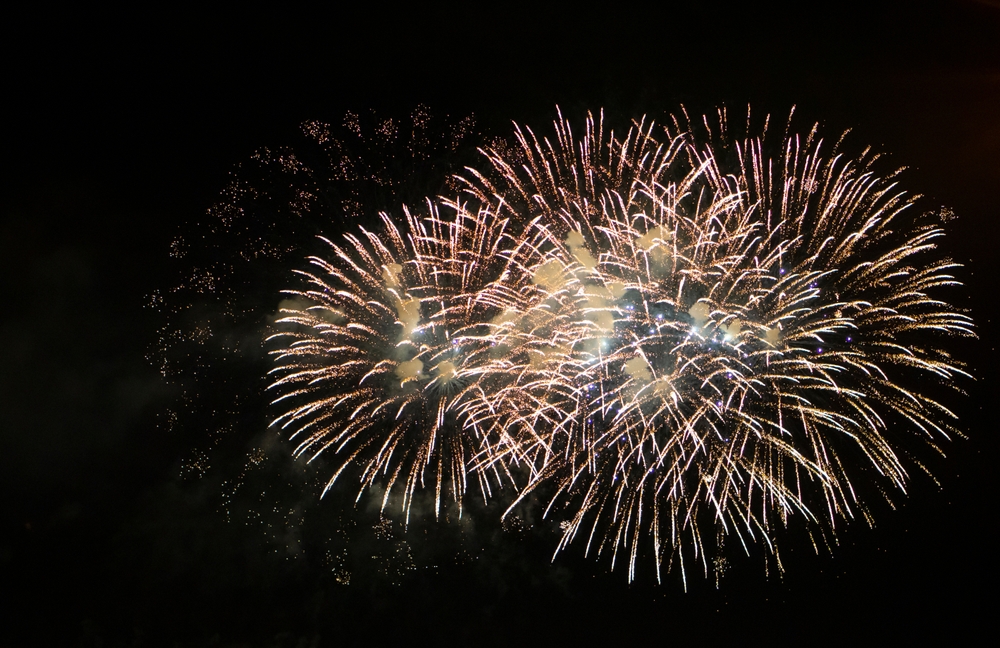While a joyous occasion for many, July Fourth fireworks, crowds, and parties can induce anxiety in pets and put them in harm’s way. Up to two-thirds of dogs experience noise aversion—extreme anxiety in response to loud noise—but most of them go undiagnosed and untreated. Fortunately, you can help your pet stay calm when loud noises abound and protect them from other holiday dangers by adhering to our Monte Vista Animal Hospital team’s Independence Day do’s and don’ts.
DO keep pets safe indoors
Fireworks can be terrifying for pets, especially the two-thirds of dogs with noise aversion, an anxiety and panic condition. Whether pets have severe noise anxiety or simply become startled, they could run away if they aren’t secured inside. Keep your pet in an interior room, basement, closet, or bathtub where they feel comfortable and are insulated from outside noises and flashing lights.
DON’T bring pets to holiday events
While including your furry pal in community activities might be tempting, leaving them at home is the safest option. Crowded spaces and fireworks booms can stress your pet. Keep your pet at home in their familiar space where they feel secure.
DO update your pet’s identification
If your pet inadvertently runs away, proper identification (ID) can help ensure they make it home again. Invest in a well-fitting collar with a current, legible ID tag, and consider microchipping your pet. A microchip is a tiny device implanted underneath your pet’s skin, which can provide veterinary hospitals, police departments, or animal shelters with your contact information if they find your lost pet.
DON’T leave pets unsupervised during gatherings
Having friends and family at your house can be stressful for your pet. Unfamiliar people, children, or other pets can spark anxiety or discomfort. Assess your pet’s personality to determine if they should be allowed to mingle with guests outdoors, then supervise them closely to ensure that interactions with guests remain positive. Also, remind your guests to close gates and doors securely to prevent your pet from escaping.
DO learn about noise aversion in pets
Noise aversion is a common condition in pets but is often overlooked by pet owners. A pet with noise aversion becomes extremely stressed after hearing a trigger sound and remains stressed long after the noise stops. Although a mild startle response is expected, pets should recover quickly and return to normal activities. Pets who continue to be anxious after hearing a noise are suffering and require treatment to feel better.
DON’T ignore distress and anxiety signs in pets
Monitor your pet closely for noise aversion and general stress signs, which include panting, pacing, drooling, hiding, shaking, vocalizing, or trying to escape. If your pet has displayed these behaviors before in response to noise, you can expect them to recur during July Fourth fireworks and should take preventive actions to help your pet remain calm.
DO ask about calming products and medications for pets
Calming products, supplements, pheromones, music, and medications are valuable tools in the arsenal against anxiety and noise aversion. Consult our veterinary team before the holiday to assess your pet’s anxiety level and noise sensitivity and develop an action plan to prevent or address anxiety when it occurs.
DON’T allow pets near dangerous holiday items

Barbecue skewers, matches, lighter fluid, citronella candles, toxic foods, corncobs, animal bones, alcohol, hot grills, trash, and backyard fireworks are dangerous if your pet ingests or comes in contact with them. Keep these items out of your pet’s reach.
By following our basic safety measures and helping your pet cope with fireworks noise, you can help them survive the summer season unscathed. Help prepare your furry pal by contacting our Monte Vista Animal Hospital team to schedule a noise phobia consultation or microchipping appointment.






Leave A Comment